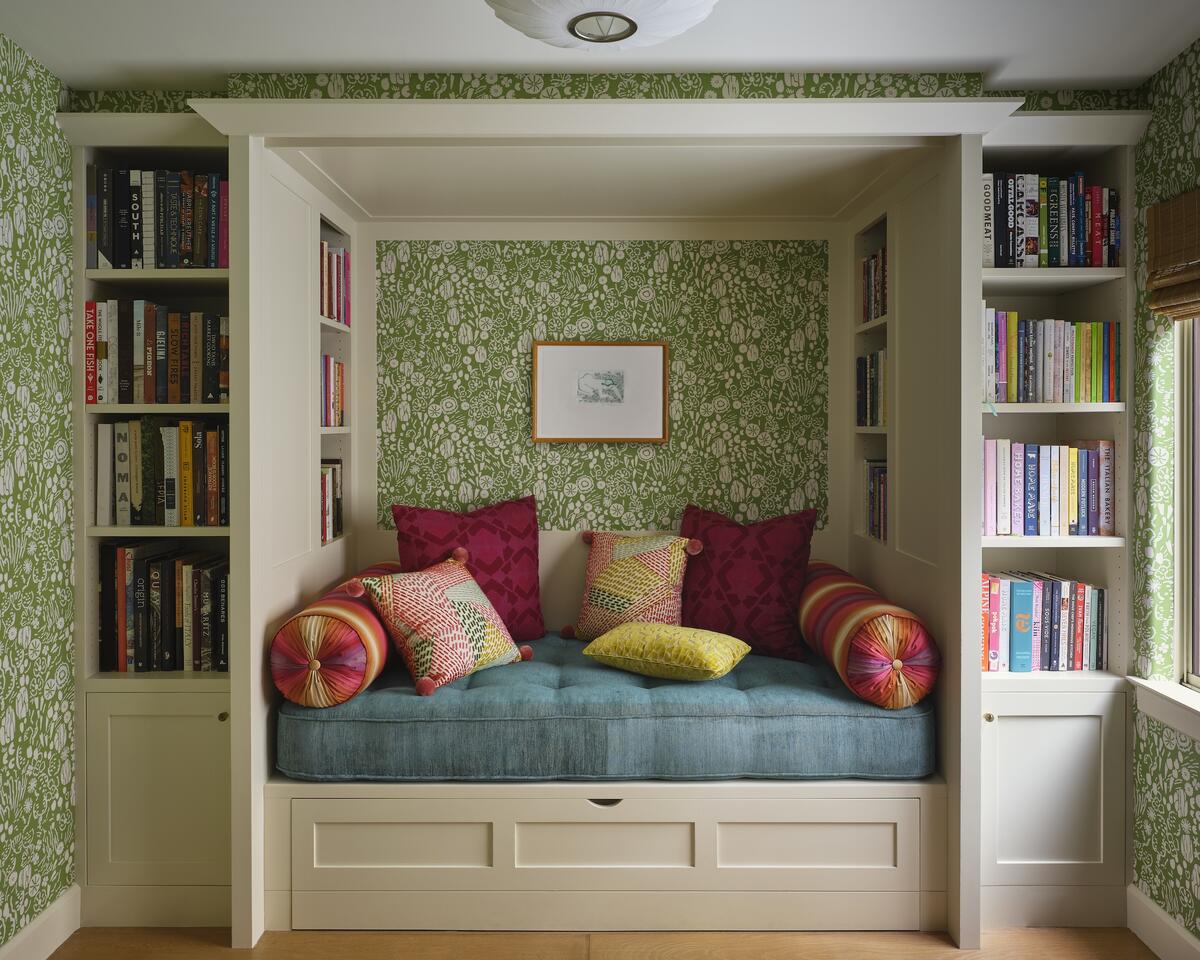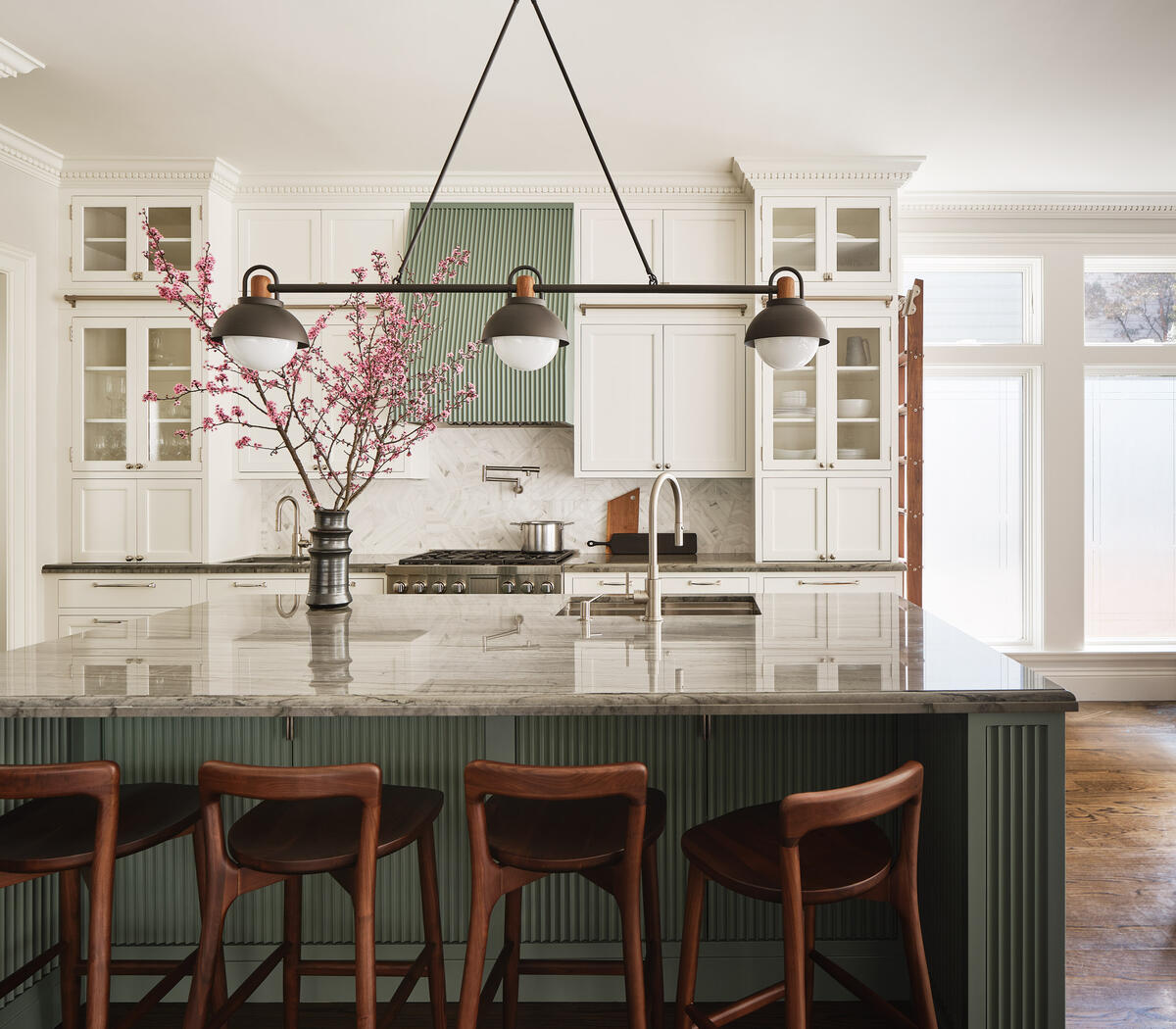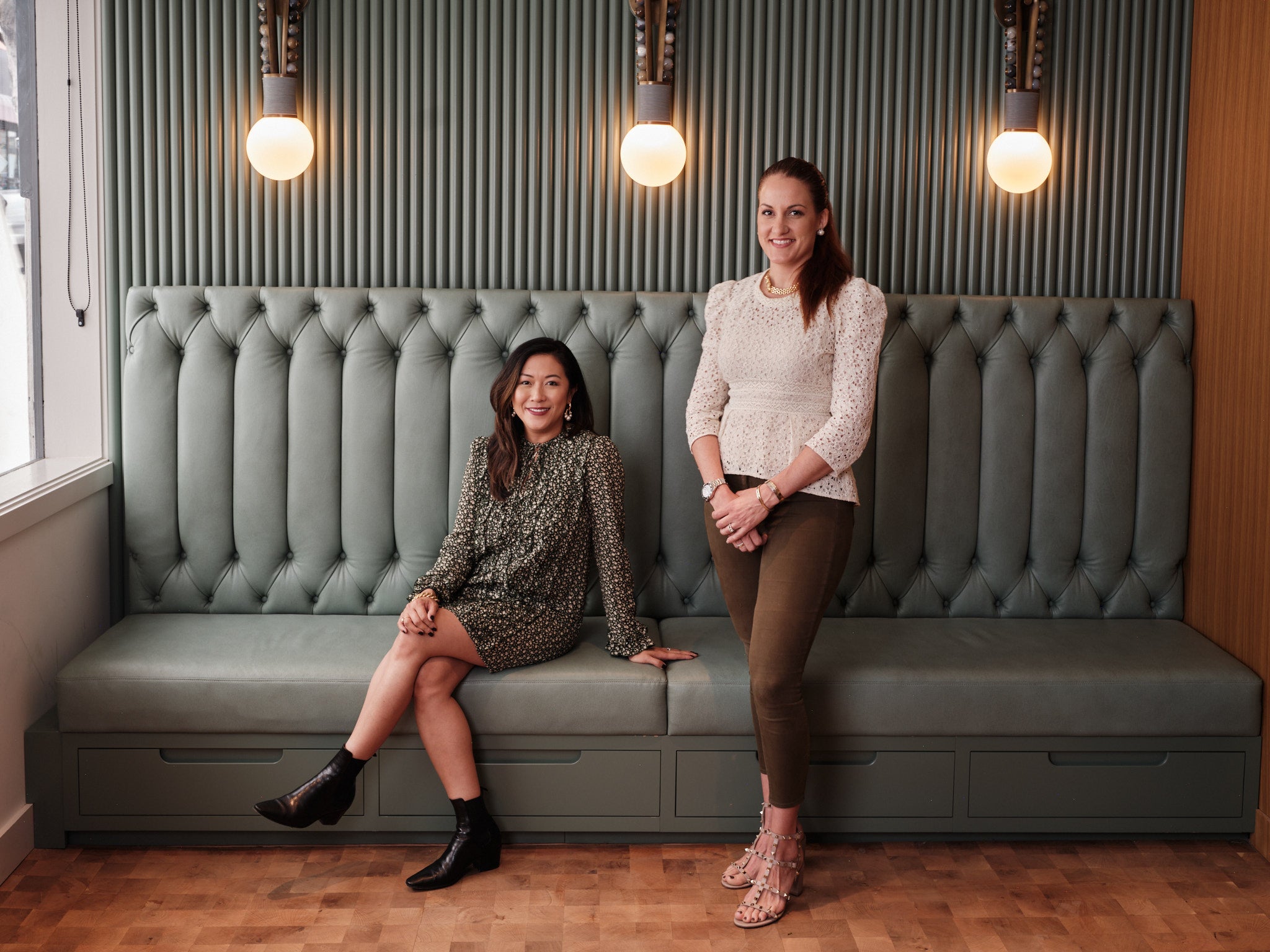A truth universally acknowledged: Breakups are hard. It’s true romantically, of course, but it’s also hard to split from your business partner, someone with whom you’ve built a firm, enmeshing both your creative and financial successes. It’s common, when you’re divvying up a business, for things to get messy and contentious. But when it came time for Eva Bradley and Alicia Cheung to go their separate ways, the duo behind San Francisco–based Studio Heimat, knew that they were not going to let things go down that way.
In January 2024, Bradley and her husband made the decision to relocate from the Bay Area to Charleston, South Carolina to be closer to family. The move wasn’t immediate—they gave themselves an 18-month timeline—but Bradley, who had been in business with Cheung for nine years, knew she had to give her business partner ample time to process the news. “We both needed to figure out what our next moves would be, and that would take some time,” says Bradley. “It wasn’t just about what was best for us, but for our staff and for our clients as well.” While the pair had some initial conversations about opening a second studio in Charleston, they ultimately decided that the best move would be to wind down Studio Heimat and launch two separate studios, Alicia Cheung Design in San Francisco and Eva Bradley Studio in Charleston. They officially wound down Studio Heimat on December 1.

The decision to split was a difficult one but came down to a number of factors. For one, the California-based firm had no existing business in South Carolina, so opening a studio there came with some financial risks. Being bicoastal would have also meant a lot of remote work, something that Bradley and Cheung weren’t up for as a permanent modus operandi. “We had a trial run of remote work during the pandemic, and I think we lasted only eight weeks before Eva and I were back in the office together,” says Cheung. “Thinking of working remotely together all the time, especially adding in a three-hour time difference, would be a totally different way of doing business. It felt more organic to each do our own thing and move on, rather than to try and make a business work together from across the country.” Even keeping the firm’s name didn’t feel quite right for Cheung, as “heimat” is a German word that translates loosely to “home” and was a nod to Bradley’s native Switzerland.
During the soul-searching that followed Bradley’s announcement, Cheung even questioned whether she wanted to go through the stress of opening a new business at all. “Even before Eva told me her news, I was feeling burned-out,” she says. “I knew it was going to be hard and it was going to be stressful, but I did land in a place where I could honestly say, ’Yes, [opening a new design business] is what I want.’” She extended the same grace to the Studio Heimat staff, offering them all employment at her new firm, but encouraging them to take time to consider the choice. “I told them that they were welcome to come over to ACD and help me build this new firm, but that it would be a transition for all of us and that it was a great time to consider their own wants and needs,” she says. Of their three employees, two signed on with Cheung and one decided to leave.
As for their shared clients, Bradley and Cheung agreed that the simplest solution was to have them sign new contracts with Cheung’s new firm, with Bradley finishing out any existing projects she was working on. “I never wanted the clients to feel like, ’Oh, Eva’s gone now,’” says Bradley. “I also didn’t want to be sending them bills from two separate companies or to feel like they’re paying for our transition. So having them sign over to Alicia’s firm felt like the simplest solution.”

The duo acknowledges that there aren’t many examples of how to consciously uncouple, so to speak, in the design industry—situations where design partners go their separate ways because of extenuating circumstances, not because the collaboration wasn’t working out. One situation that they did look to was the split of architects John Ike and Tom Kligerman in 2022, who separated after 33 years to launch their own firms. It helped that Studio Heimat employs the same PR firm as Ike and Kligerman, Hello PR. “We told our PR team the plan really early on and, because they had been through these situations before, they were able to act almost like a mediator—a third party who genuinely wanted what was best for both of us—which was super helpful because there are a lot of difficult conversations you have to have during this kind of transition,” says Cheung.
To hold themselves accountable to make the split happen in a timely fashion, Bradley and Cheung started by setting a closing date of December 1, mostly for tax purposes of closing out the business by the end of the year, and then worked backward to set other deadlines like telling their staff, communicating the change with clients and creating websites and branding for their new entities. “We tried to keep things bite-size because we were still running the firm day to day as we were making these other decisions,” says Bradley. “It helped knowing we didn’t have to make every choice at once.”
The pair are still slowly adjusting to the new phases of their careers, winding down their final Studio Heimat projects this year. Bradley will officially move to Charleston this summer, and she hopes to have a studio office and a small staff by the fall. “It’s like being brand-new again,” says Bradley. “I know Alicia is feeling this too—starting a new business on your own when we’ve always been a team, it’s nerve-wracking and exciting at the same time. It’s a chance to redefine ourselves. It’s sad and scary to leave what we’ve known, but it’s also exciting to make this next chapter our own.”





























